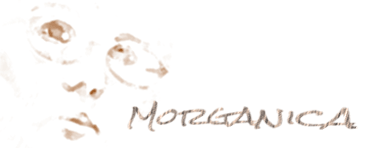“I just need $14.50,” the woman said anxiously, “And I’ll have enough for a room for the night. That’s all, and I’m not lying! It’s only so I have a place to sleep.”
I’d run into the beggarwoman outside Powells’ bookstore in Portland’s Pearl District. I’d had a rare hour to spare before my next appointment and so was doing my favorite thing: Drifting the streets and watching.
Dan Chen had a head falling off in the Lawrence Gallery, a place I hit up regularly to learn from their bronzes. The plastilene originals were garnering business for Chen’s forthcoming castings, but apparently the eagle spent a bit too much time in the sunny window and its head tilted down dangerously.
“He’s coming to push the head back on,” the rep assured me, and a lady standing by the case looked over, startled.
“You mean it’s not supposed to be like that?” she asked, and I chuckled at her joke. Turned out she wasn’t joking, and her glare sent me all the way to the bookstore, where I found my beggarwoman.
She perched on the corner, in front of the dark red bricks, loud and pleading. When I fumbled in my purse for a dollar, she frantically assured me of her honesty.
“Thank you, God bless you, someone will love you,” she said like a litany, smiling wide and pocketing the bill, “It’s not for drugs or drink, I promise! I just need a place to sleep tonight or I wouldn’t do this at all. I’m NOT lying!”
I shook my head, “I don’t care if you are,” I said, “It’s your money now,” and walked into Powells. It occurred to me, as I browsed the stacks, that she probably only heard the “I don’t care,” which wasn’t what I meant.
I approached a bench to sit down, but the old lady already there growled and I stopped, taken aback. She was reading Anais Nin, and as I stood there she raised her head.
“Smut! Smut! Smut!” she said, loudly, “This book is nothing but SMUT!” And she stomped off with Anais tucked under one arm.
Two dudes walked by, wearing wifebeater tees. As they passed, the shorter one replied, “Yeah, but I saw this PBS thing about this guy with an eyepatch who glassblows, and Darryl says old rich babes really go for glassblow guys…”
Good to know.
I bought a magazine and walked out; the beggarwoman was still there, calling to shoppers. As I walked her way, I passed an old man quietly sitting on the sidewalk, back against the bricks.
He was dressed in a long ZZ-Top beard and broken fatigues, and stared, unmoving, at the ground. His bowl held one nickel.
I stopped, sighed and held out another dollar. He reached up gently, with scarred purple fingers, and eased it from my hand. “Thank you,” he said quietly, “This is safer than putting it in the bowl. Sometimes they take it from you.”
Down the block, the beggarwoman gave me a reproachful look. “I only need another $4.75.”
“I gave you something already,” I reminded her.
“Oh, I know, honey,” and she laughed, “I just thought you’d like to know, I’ve almost got enough for tonight.”
I held out my hand, “I’m Cynthia.” She shook it solemnly.
“I’m Michelle,” and she looked into my eyes, “I really am a professional, you know. I have two years of college and I was a bookkeeper for thirty years but my company went out of business, and jobs,” she sighed, “Jobs, they aren’t so easy to find now.”
She was dressed in three sweaters, red and purple-striped and black, with a stocking cap pulled low over her stick-straight, salt-and-pepper hair. Her hair fell past her shoulders, held back by thick-rimmed glasses. She wore no makeup and no rings, but she had a smile stretched wide and tight over perfect teeth, and an earnest manner.
“I know all the accounting software packages, and I’ve done AR and AP and collections. Isn’t that a laugh, collections? Me?” and she snorted, “But if you’re homeless and you can’t afford a cellphone, and you don’t have a good credit rating, the bosses, they won’t give you a break. I mean, in business college they taught us those were danger signs, a dishonest employee that would steal you blind.”
“So I guess,” and she blinked, “that I’m a danger sign now.”
“Isn’t there some kind of service that will give you an address and maybe a phone or something?” I asked, curious.
“Oh sure, you can pay this service to give you a mailing address and take messages but the employers, they know that trick. I was scared when the unemployment ran out and I lost my house but I’m getting along. It’s not so bad,” she said, pensively, “They’ll give me $5,000 to go to school and I could live on that until I get my degree and find a job.”
“But that’s not until September,” she sighed, “I’ve gotta hold on until then. I’m on the list for dishwasher at this one place. Maybe that will pan out. You never know.”
A guy in his 20s clicked off his mobile and approached expectantly, as if we were at a party and he wanted in on the conversation. He smiled, and Michelle looked him over.
“I only need $4.75 to make my room rent tonight,” she told him, and he looked surprised.
“All you need is $4.75?” he asked. He reached into his pocket and pulled out a crumpled $5. “Here.”
“Bless you, thank you, bless you both,” she said, and he waved and walked off.
I moved in the other direction, down the street to my next appointment. When I looked back, Michelle had gathered her things and was walking toward Burnside Street, singing.

Comments welcome! (thanks)